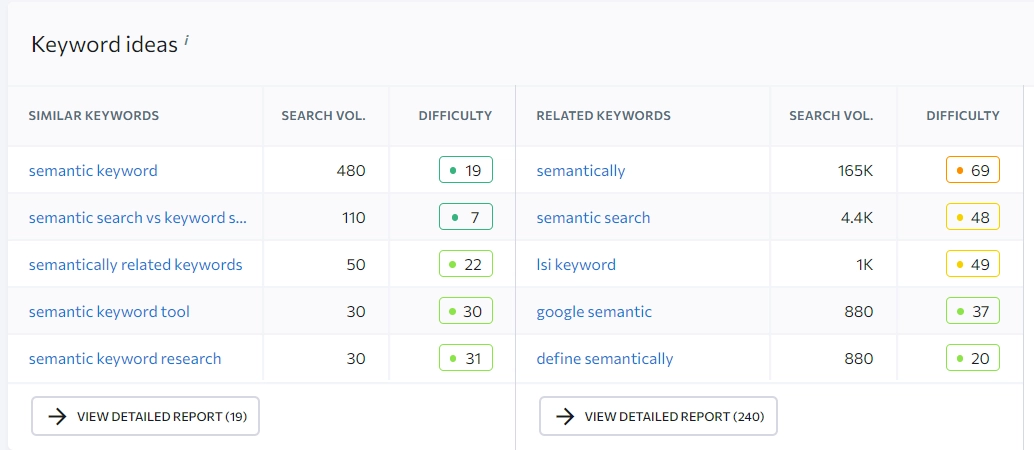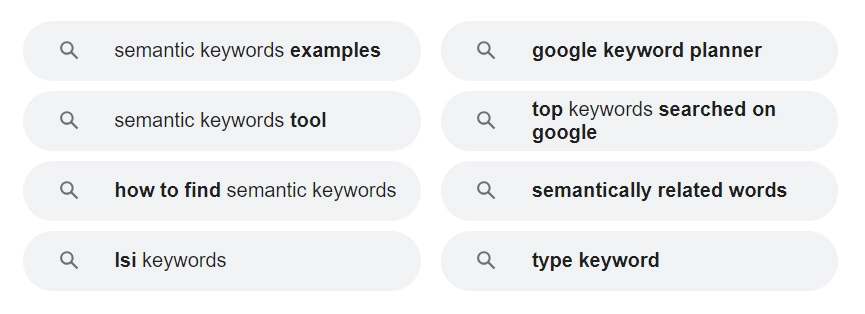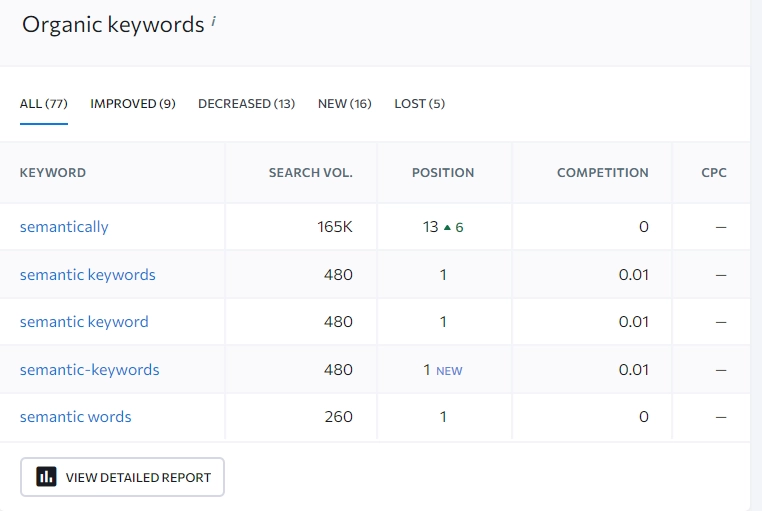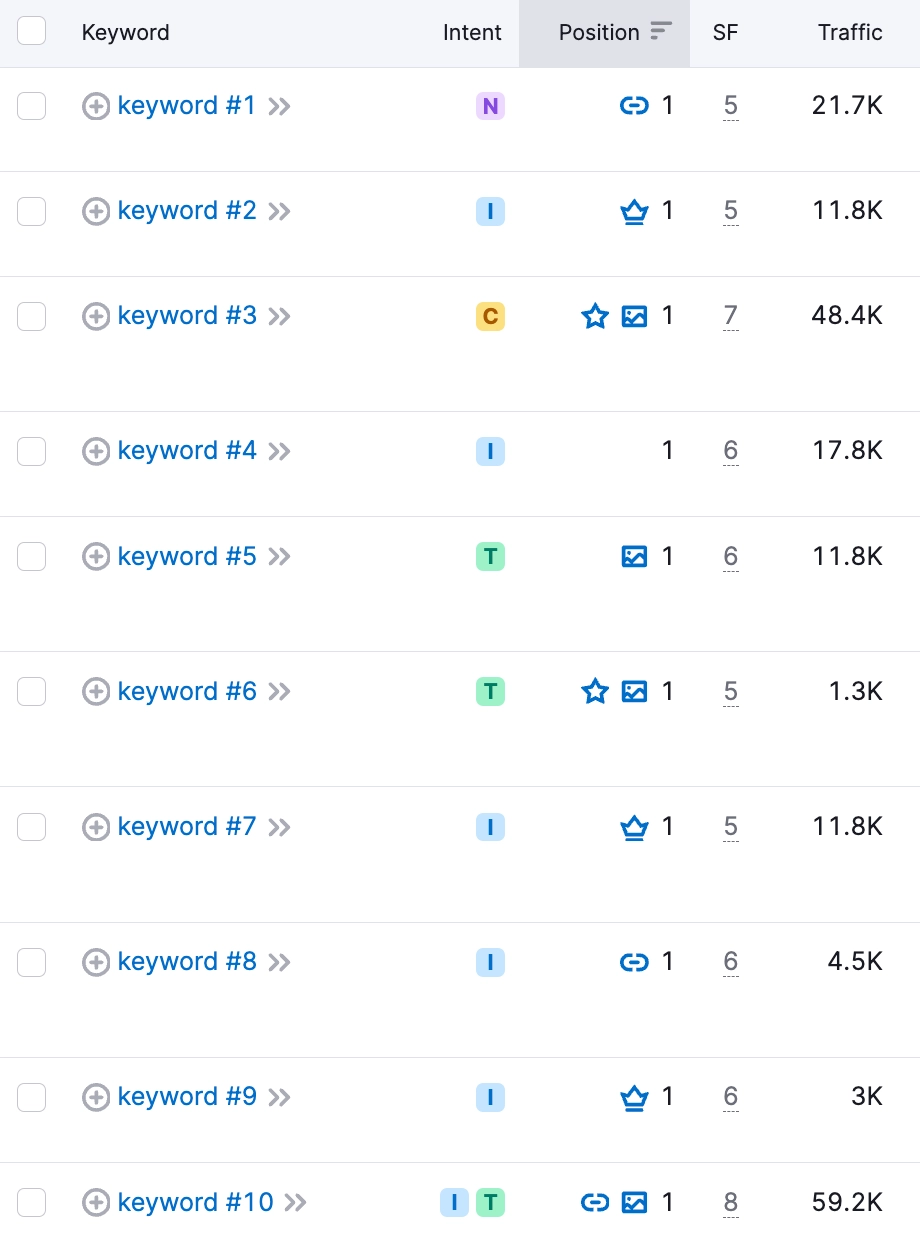In the constantly evolving landscape of Search Engine Optimization (SEO), semantic keywords have emerged as vital players. But what exactly are they, and how can you use them to enhance your website’s visibility and relevance? Let’s delve deeper into the nuances of semantic keywords, enhancing your grasp of how to effectively employ them to amplify your content’s reach and engagement.
What are Semantic Keywords?
Semantic keywords go beyond mere synonyms or closely related terms; they encompass a broader context that frames your primary keyword within a specific topic or question. These keywords echo the natural language used by your audience, mirroring real conversations and queries. This alignment not only boosts SEO but also caters to the evolving capabilities of search engines to interpret content more like humans do.
For example, if your primary keyword is “vegan recipes,” semantic keywords could include “plant-based ingredients,” “dairy-free cooking,” and “easy vegan meal prep.” Each of these terms expands the topic, offering search engines more clues about the content’s focus.
Why is the Use of Semantic Keywords Important?
The importance of semantic keywords can’t be overstated. They’re critical for a few reasons:
- Enhanced Understanding: Semantic keywords help search engines grasp the context and nuances of your content. This improved understanding can lead to better rankings in search results.
- Increased Relevance: Semantic keywords open doors to a multitude of search queries, casting a wider net to capture a diverse audience. By encompassing a range of related topics and questions, your content becomes relevant to more searches, even those you hadn’t explicitly targeted. This broader relevance can lead to unexpected traffic growth from areas within your niche you hadn’t considered.
- Better User Experience: Semantic keywords make your content richer and more informative, leading to a better experience for readers. This can increase engagement, reduce bounce rates, and encourage readers to explore more of your site.
How to Use Semantic Keywords
Now that we understand the what and why, let’s tackle the how. Finding and incorporating semantic keywords into your content strategy is a multi-step process, but here’s how you can start:
Start with Keyword Research
Use keyword research tools (Google Keyword Planner, SEMrush, Ahrefs Keywords Explorer, Moz Keyword Explorer) to find your primary keyword and related terms. Look for phrases that share the same intent or topic as your main keyword.

Analyze Related Searches
Scroll to the bottom of Google’s search results for your primary keyword. The “Related searches” section is a goldmine for finding semantic keywords.

Check Out Competitors
See what keywords your competitors are targeting in their content. This can give you insights into relevant terms you might have missed.

Incorporate Them Naturally
Once you have your list of semantic keywords, weave them into your content naturally. They should fit seamlessly into your text, headings, meta descriptions, and even alt text for images. The goal is to enrich your content without forcing keywords where they don’t belong.
Keep User Intent in Focus
Always align your semantic keywords with user intent. Your content should answer the questions your audience is asking or provide the information they’re seeking.
Semantic Richness in Metadata
Don’t stop at the body of your content; enrich your meta titles, descriptions, and even image alt texts with semantic keywords. This not only aids in SEO but also makes your content more compelling in search engine results pages (SERPs), encouraging clicks.
Continuous Evolution
The landscape of language and search is constantly evolving, and so should your use of semantic keywords. Regularly review and update your content to include new terms and topics as they emerge. This ongoing refinement ensures your content remains relevant and authoritative.
In the digital age, the line between writing for search engines and writing for people is blurring. The effective use of semantic keywords stands at the heart of this convergence, marrying SEO with genuine, engaging storytelling. By focusing on the rich tapestry of related terms and concepts that surround your main keyword, you can craft content that is not only SEO-friendly but also deeply resonant with your audience.
Remember, the ultimate goal is to serve your readers with valuable, informative content that answers their questions and enriches their understanding. Semantic keywords are tools to achieve this end, ensuring your content does more than just rank well—it connects, educates, and inspires.




